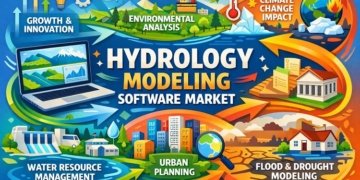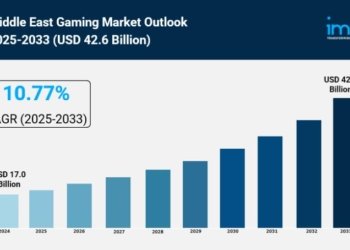NEW YORK, June 24, 2025 (GLOBE NEWSWIRE) — Glimpact, the first platform for analyzing the overall systemic environmental impact of products and organizations, today announced that CEO and Founder Christophe Girardier will speak at PI Apparel New York 2025. The discussion will focus on the evolving dynamics of brand-supplier relationships in the apparel industry, emphasizing sustainability as a key differentiator for smart, innovative businesses in the future. His remarks will explore how genuine sustainability efforts depend on stronger alignment between brands and their supply chains – where suppliers need brand support to invest in sustainable practices, and in turn, brands rely on suppliers to meet environmental expectations.
Glimpact will also be exhibiting at Booth #2, where they will demonstrate how the Glimpact platform helps companies understand and meaningfully reduce their environmental footprint.
On Day 2 of the event (June 25th), Girardier will be joining a panel discussion titled Collaboration is Broken – How Do We Fix Brand-Supplier Relationships?. Rather than treating sustainability as a compliance task, Girardier will describe how it can serve as a foundation for stronger brand-supplier relationships and why this is essential for achieving real environmental progress. The panel will address how suppliers need brand support to implement sustainable practices, while brands rely on supplier innovation to meet ambitious goals. The session will be held at 11:15 am EDT.
Girardier will be joined by:
- Liza Deyrmenjian, Domestic Manufacturing Expert, Educator, and Sustainability Leader at The Cutting Room
- Miranda Morrison, VP, Design & Sustainability at Steve Madden
- Alexander Snyder M.F.A, Clinical Assistant Professor at Arizona State University.
“True sustainability requires strong collaboration between brands and suppliers at all levels of the value chain,” said Christophe Girardier, CEO of Glimpact and sustainability advisor to the European Commission. “90% of a fashion product’s environmental impact comes from raw material production, and specific manufacturing processes like dyeing, weaving or knitting. Brands who are serious about sustainability rely on their suppliers, not just tier 1 suppliers who assemble the final products but all suppliers from tier 1 to N.”
“If the majority of the impact happens at the farm level or early production stages, then brands need to work with these suppliers to tangibly reduce their environmental footprint. In turn, these suppliers need brands to support and invest in sustainability innovation. It’s a virtuous cycle that turns ecological challenges into opportunities for stronger, more resilient partnerships,” added Girardier.
Girardier’s appearance comes on the heels of Glimpact’s newly launched Global Impact Score, North America’s first publicly accessible online life cycle assessment tool to measure and analyze the environmental impact of apparel products. Global Impact Score evaluates the footprint of apparel products according to the Product Environmental Footprint (PEF) method, going beyond just carbon to assess 16 environmental indicators across the entire life cycle of fashion products. This tool enables brands to comply with the EU’s Ecodesign for Sustainable Products Regulation (ESPR), which mandates that products must declare their environmental performance and meet sector specific eco-design requirements.
To demonstrate the functionality of Global Impact Score, Glimpact conducted a fashion apparel study to uncover the real stakes of the fashion industry’s ecological transition. A report analyzing over 100 apparel products from leading brands like Patagonia, Reformation, H&M, and Ralph Lauren found that:
- Over 90% of an apparel product’s environmental impact originates before product assembly, primarily during raw material production and material processing.
- Carbon emissions represent just 23% of total impact, with other factors like water use, land use, and eco-toxicity playing critical roles.
- Simple changes, such as selecting alternative cotton sources or improving dyeing processes, can reduce product environmental impact by up to 40%.
To meet Christophe at the event, learn more about Global Impact Score, or for more information about Glimpact’s solutions, please contact product-na@glimpact.com.
About Glimpact
Glimpact, a sustainability venture with operations in New York, France and Belgium, is the first digital platform enabling the assessment of the overall environmental impact of products and organizations based on the new scientific doctrine of the EU. It provides access to the Product Environmental Footprint (PEF) methodology, developed by the European scientific community and adopted by the EU in 2021. Glimpact allows all stakeholders to not only measure the environmental footprint of their products or organizations but more importantly, to identify effective actions to reduce it.
The French government has selected Glimpact as the coordinator for one of the methods considered in the government experiment on environmental labeling of food and textile products. The company is a member of the technical committee assisting the Ministry of Ecological Transition in defining the modalities of environmental labeling mandated by the Climate and Resilience Law. Glimpact has been chosen by the European Commission, following a global tender, to implement legislation for the battery and photovoltaic solar panel sectors. This legislation will require these actors to display the environmental footprint of their products measured using the PEF methodology.
Glimpact already boasts solid expertise and experience with major players in the industry and distribution, including Lacoste, Decathlon, Mars, Gant, Carrefour, Puratos, Manutan, Spadel, Adeo, Lyreco, Pimkie, Chantelle, Celio, Aigle, Galler, and Bewital.
Media Contact
Olivia Ludington
Firecracker PR for Glimpact
olivia@firecrackerpr.com



















